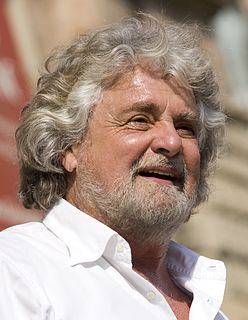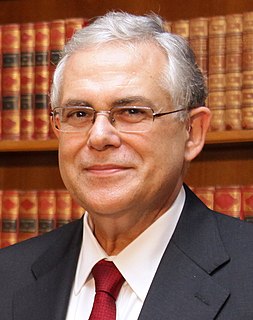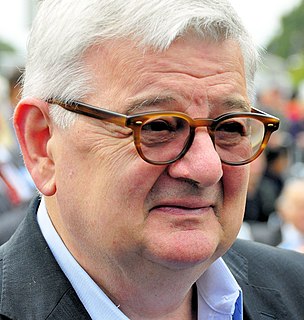Top 338 Euro Quotes & Sayings - Page 5
Explore popular Euro quotes.
Last updated on November 23, 2024.
At the time of the formation of the euro, I would say most American economists said that's not a good idea; that's not a currency area that makes sense. And the answer from Europe was, 'How is Missouri and Mississippi a currency area?' But the flaw in that was not recognizing the importance of mobility.
This much is true: When we created the euro, it wasn't possible to create a political union along with it. People weren't ready for that. But since then, they've grown more willing to go in that direction. It's a process, one that is sometimes laborious and sometimes slow. But it's important to keep the populations involved.
There's no more place in the euro zone for well-meaning laxness when dealing with deficits and failings. If the demands on Greece aren't taken seriously, we'll get stuck in quicksand. In the worst case, this would make it acceptable for one tranche to not be paid out. It is in the Greeks own interest not to test that.
The problem is that, in a world of floating exchange rates, as Italy was before the euro, if one country is subjected to a shock which requires it to cut wages, it cannot do so with a modern kind of control and regulation system. It is much easier to do it by letting the exchange rate change. Only one price has to change, instead of many.
We have been in recess since July, and during that time there has been a fuel crisis, a Danish no vote, the collapse of the euro and a war in the middle east, but what is our business tomorrow? The Insolvency Bill [Lords]. It ought to be called the Bankruptcy Bill [Commons], because we play no role.
If the euro zone doesn't come up with a comprehensive vision of its own future, you'll have a whole range of nationalist, xenophobic and extreme movements increasing across the European Union. And, frankly, questions about the British debate on EU membership will just be a small sideshow compared to the rise of political populism.
We [European countries] probably need to move forward together, each at their own speed. The faster ones, that could be the countries in the euro zone. The others would be those who are interested in the continued development of the common market, but reject the idea of an ever stronger political integration.
The designs of the paper euros, introduced in 2002, proclaim a utopian aspiration. Gone are the colorful bills of particular nations, featuring pictures of national heroes of statecraft, culture and the arts, pictures celebrating unique national narratives. With the euro, 16 nations have said goodbye to all that.
New York has become almost a third-world country. When I was growing up it was mostly a Euro-American country. And it wasn't until LaGuardia was elected in 1933 that Italians were even considered Americans. We're at a great transition point in terms of population, demographics, and what it means to be a human being.
Stabilizing the euro is one thing, healing the culture that surrounds it is another. A world in which material values are everything and spiritual values nothing is neither a stable state nor a good society. The time has come for us to recover the Judeo-Christian ethic of human dignity in the image of God.
Let's start with the euro. What on earth were we thinking? How could anyone with the faintest grasp of economics have believed it was anything other than sheer insanity to yoke together diverse national economies such as Greece, Ireland, Germany and Finland under a single exchange rate and a single interest rate?
Today, no one would dispute that information technology has become the backbone of commerce. It underpins the operations of individual companies, ties together far-flung supply chains, and, increasingly, links businesses to the customers they serve. Hardly a dollar or a euro changes hands anymore without the aid of computer systems.
The interesting thing is that the 82% of the Greeks do not want to abandon the Euro. They really believe that there might be some kind of magical way where we could stay in the Eurozone but do not do our homework. This is not possible. So what we are trying to do is explain, you know, we in Greece invented democracy but we also invented at the same time populism.
The position of EU commissioner for economic and monetary affairs could be combined with the office of Euro Group chairman. That job would be a great challenge for anyone who assumed it. On the one hand, he would have to make proposals. On the other hand, he would have to negotiate compromises with his European counterparts.
The Czech Republic, severed from its old Slovak half, sits in apparent landlocked contentment, inside the European Union but outside the troubled Euro Zone, set into the new Continental mosaic like one of the small sturdy paving stones, just a few inches square, that form the sidewalks under the visitor's ambling feet.
















































